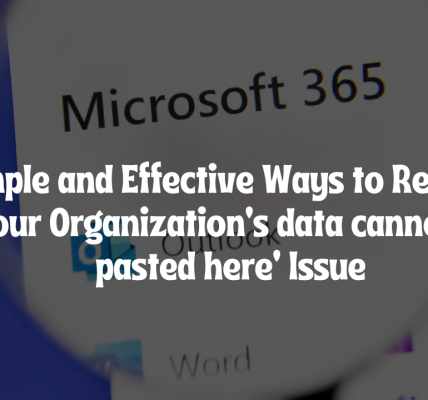In today’s dynamic business landscape, empowering your team with the right tools is crucial for achieving organizational success. Human Resource Management Systems (HRMS) have evolved to become an integral part of this strategy, streamlining HR processes, enhancing employee engagement, and driving productivity. The future of HRMS Solution in Riyadh is rapidly unfolding, driven by technological advancements and regulatory changes.
The Importance of HRMS Solutions
What is HRMS?
Human Resource Management Systems (HRMS) are integrated software solutions designed to manage and automate various HR functions. These include employee records, payroll, recruitment, performance management, training, and compliance. HRMS solutions facilitate seamless data management and enhance the efficiency of HR processes.
Why HRMS is Essential for Businesses
Streamlined HR Processes: Automates repetitive tasks, reducing manual errors and increasing efficiency.
Enhanced Data Management: Centralizes employee data, ensuring accuracy and consistency.
Improved Compliance: Helps businesses comply with local labor laws and regulations.
Employee Engagement: Provides tools for performance management, feedback, and development, fostering a positive work environment.
Informed Decision-Making: Offers analytics and reporting capabilities for data-driven decisions.
Benefits of HRMS Solutions for Saudi Arabian Businesses
Addressing Local Business Needs
Compliance with Saudi Labor Laws: HRMS solutions help businesses comply with Saudi-specific labor laws, including Saudization requirements and employee benefits.
Arabic Language Support: Solutions tailored for the Saudi market offer support for the Arabic language.
Localization: Customization to meet local business practices and cultural nuances.
Competitive Advantage
Talent Management: HRMS solutions provide tools for effective recruitment, performance management, and employee development, helping attract and retain top talent.
Operational Efficiency: Streamlined processes and automation lead to cost savings and improved productivity.
Employee Satisfaction: Enhanced employee engagement and satisfaction through better HR practices.
Integration and Collaboration
Unified Platform: Integrates various HR functions into a single platform, promoting collaboration and reducing silos.
Real-Time Collaboration: Facilitates real-time communication and collaboration across teams.
Key Features of Modern HRMS Solutions
Core Functionalities
Employee Information Management: Centralized database for storing employee information.
Payroll Management: Automates payroll processing, ensuring accuracy and compliance with local laws.
Attendance and Leave Management: Tracks employee attendance, leave balances, and approvals.
Recruitment and Onboarding: Streamlines the hiring process, from job postings to candidate selection and onboarding.
Advanced Features
Performance Management: Instruments for goal-setting, evaluating performance, and giving feedback.
Learning and Development: Supports employee training and development programs.
Employee Self-Service: Allows employees to access and manage their personal information, request leave, and view payslips.
Analytics and Reporting: Provides insights through advanced analytics and customizable reports.
Localization Features
Compliance with Saudi Labor Laws: Ensures adherence to local regulations, including Saudization.
Arabic Language Support: Interfaces and reports available in Arabic.
Multi-Currency Support: Handles payroll and transactions in multiple currencies, essential for multinational companies.
Emerging Trends in HRMS Solutions
Artificial Intelligence (AI) and Machine Learning (ML)
Automated Recruitment: AI-driven recruitment tools that screen resumes, schedule interviews, and assess candidates.
Predictive Analytics: ML algorithms that predict employee performance, turnover, and engagement levels.
Chatbots: AI-powered chatbots providing instant HR support and answering employee queries.
Cloud-Based Solutions
Accessibility: Cloud-based HRMS solutions provide access to HR functionalities from anywhere, facilitating remote work.
Scalability: Easily expandable to meet evolving demands and business expansion.
Cost-Effective: Reduces the need for expensive on-premise infrastructure and maintenance.
Mobile HRMS
On-the-Go Access: Mobile-friendly interfaces allowing employees and managers to access HR functions from their smartphones.
Enhanced Engagement: Increases employee engagement by providing easy access to HR services.
Integration with Other Systems
Seamless Integration: HRMS solutions integrating with other business systems like ERP, CRM, and payroll software.
Unified Data: Consolidation of data across systems for comprehensive insights and better decision-making.
Popular HRMS Solutions in Saudi Arabia
Bnody
Overview: Bnody is a leading cloud-based HRMS solution offering a comprehensive suite of HR functionalities, including core HR, payroll, talent management, and learning.
Key Features
-
Robust talent management tools
-
Comprehensive learning and development modules
-
Advanced analytics and reporting
-
Compliance with Saudi labor laws
Pros
-
Highly customizable
-
Strong integration capabilities with other SAP products
-
Scalable and flexible
Cons
-
Higher cost
-
Complexity may require extensive training
Implementation Considerations
Planning and Preparation
Needs Assessment: Conduct a thorough assessment of your HR needs and processes to identify the right HRMS solution.
Budgeting: Prepare a realistic budget that includes software costs, implementation, training, and ongoing support.
Vendor Selection: Choose a vendor with a strong track record and experience in the Saudi market.
Implementation Steps
Project Planning: Develop a detailed implementation plan with timelines and milestones.
Data Migration: Plan and execute the migration of data from existing systems to the new HRMS.
Training: Provide comprehensive training for HR staff and employees to ensure smooth adoption.
Testing: Conduct rigorous testing to ensure all features work as expected and compliance requirements are met.
Go-Live and Support: Monitor the go-live process and ensure ongoing support to address any issues.
Post-Implementation Review
Performance Monitoring: Regularly monitor the performance of the HRMS to ensure it meets business goals and compliance requirements.
Feedback Loop: Establish a feedback loop with users to identify any issues and areas for improvement.
Updates and Upgrades: Stay updated with software upgrades and ensure continuous compliance with evolving regulations.
Conclusion
The future of HRMS solutions in Saudi Arabia is bright, with advancements in AI, cloud technology, and mobile accessibility driving transformation. By choosing the right HRMS solution, businesses can streamline HR processes, enhance employee engagement, and ensure compliance with local regulations.
FAQs
Q1: What is HRMS, and why is it important for businesses in Saudi Arabia?
A: HRMS (Human Resource Management Systems) integrate various HR functions into a single system, improving efficiency, data accuracy, and decision-making.
Q2: What key features should I look for in an HRMS solution?
A: Key features to look for include employee information management, payroll management, attendance and leave management, recruitment and onboarding, performance management, learning and development.
Q3: Which HRMS solutions are popular in Saudi Arabia?
A: Popular HRMS solutions in Saudi Arabia include SAP SuccessFactors, Oracle HCM Cloud, Workday, Zoho People, and Bayzat. These systems offer comprehensive functionalities tailored to meet the specific needs of businesses in the region.
Q4: How can I ensure my HRMS solution complies with Saudi labor laws?
A: Ensure the HRMS solution supports compliance with local regulations, including Saudization requirements, employee benefits, and payroll processing. It should also offer robust audit trails, data security, and multi-language (including Arabic) and multi-currency support.





